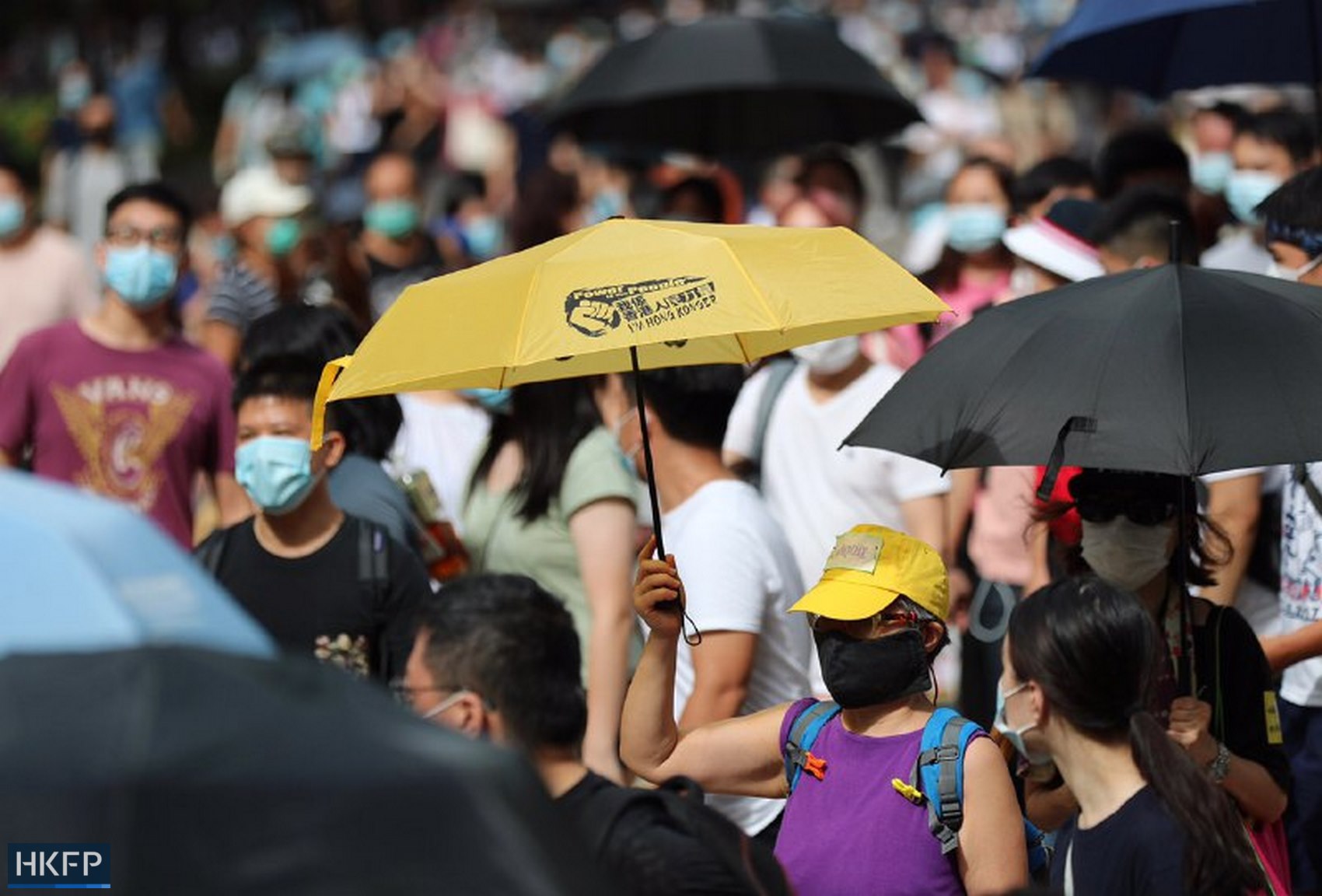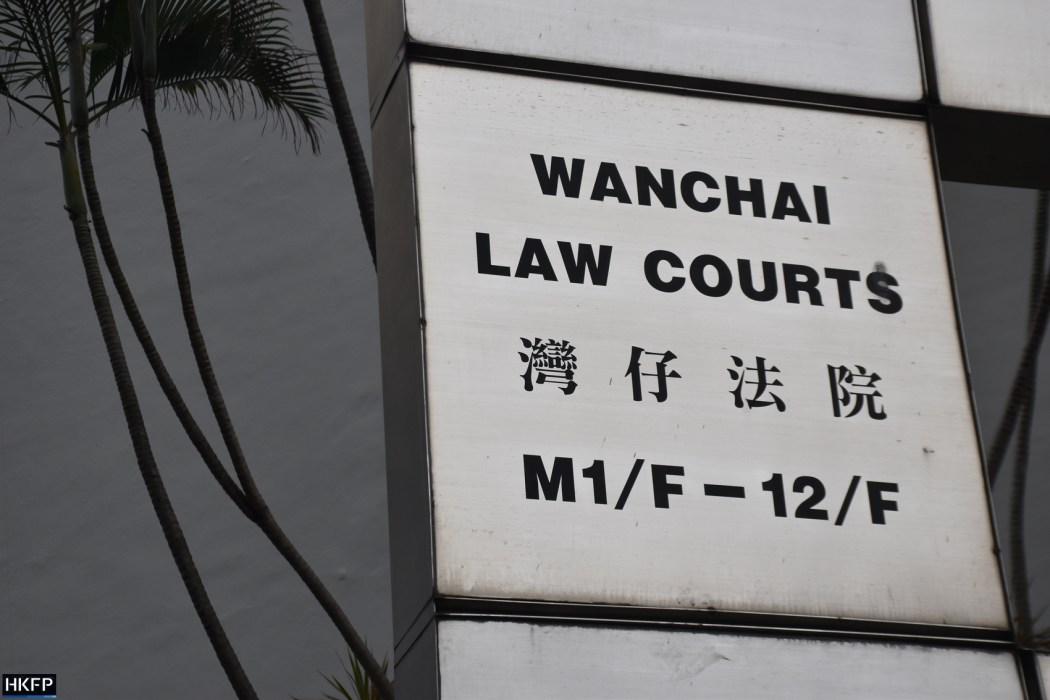It took 300 to 400 days for some 90 court cases related to the 2019 protests to reach a conclusion, Hong Kong’s security secretary has revealed in a written reply to the Legislative Council (LegCo).

Secretary for Security Chris Tang responded to questions posed by LegCo’s only “non-pro-establishment” member Tik Chi-yuen about arrest figures and trial processing time related to the protest and national security law cases on Wednesday.
Referring to some 90 protest-related cases, Tang said the time between the defendants’ first appearance at Magistrates’ Courts and the conclusion of their case at the District Court “generally ranged from 300 to 400 days or so” – around 30 per cent longer than other criminal cases.
The median time it took for cases to be dealt with by the Magistrates’ Courts was about 100 days. The median time taken for cases that were transferred from the Magistrates’ Courts to the District Court was 21 days.
At the District Court level, it took a median of around 200 days for cases to be concluded for defendants who pleaded guilty. For cases that went to trial, the median time was approximately 380 days.

Tang said the courts have “always proactively accorded priority” to the handling of cases related to the protests and the national security law, and that the judiciary “endeavours to fix an earliest possible date” for cases involving a large number of defendants.
“[T]he processing time of each case from the first hearing date to conclusion depends on a range of factors, many of which are beyond the control of the Judiciary,” he added.
The security chief listed the investigation and collection of evidence, defendants’ arrangements for legal representatives, the seeking for legal advice by both parties, and other trial preparation procedures as examples of these “factors.”
These were “necessary steps” to “ensure due administration of justice,” he said.

In addition, Tang said the judiciary had adopted various measures to speed up the handling of these cases, such as longer hours and more resources.
Protests erupted in June 2019 over a since-axed extradition bill. They escalated into sometimes violent displays of dissent against police behaviour, amid calls for democracy and anger over Beijing’s encroachment. Demonstrators demanded an independent probe into police conduct, amnesty for those arrested and a halt to the characterisation of protests as “riots.”
As of February, Tang said Hong Kong’s courts had already cleared some 1,700 protest-related cases, which was 83 per cent of the total number of around 2,100.
According to Tang, 94 per cent of cases at the Magistrates’ Courts were already concluded. The 190-odd outstanding District Court cases were “the imminent challenge” in the next one or two years.
Tang said the courts have received a total of 85 national security cases, 64 of which were concluded.

Tang did not provide the processing time for these national security cases, nor for protest-related cases that had been transferred to the High Court.
Over 2,800 prosecuted over 2019 protests
The Secretary for Security also provided the latest law-enforcement statistics related to the 2019 protests and national security offences in his written reply.
As of February 28, Tang said the force had arrested 10,277 people related to the 2019 protests and unrest, of whom 2,804, or 27.3 per cent, had been prosecuted. The court had convicted 1,172 of them and the proceedings of 939 were currently underway.
Additionally, Tang said a total of 175 persons were arrested for “committing acts that endanger national security,” 112 of which were charged. He said eight people were already convicted and 78 of the rest were remanded.
In June 2020, Beijing inserted national security legislation directly into Hong Kong’s mini-constitution – bypassing the local legislature – following a year of pro-democracy protests and unrest. It criminalised subversion, secession, collusion with foreign forces and terrorist acts, which were broadly defined to include disruption to transport and other infrastructure. The move gave police sweeping new powers, alarming democrats, civil society groups and trade partners, as such laws have been used broadly to silence and punish dissidents in China. However, the authorities say it has restored stability and peace to the city.
Support HKFP | Policies & Ethics | Error/typo? | Contact Us | Newsletter | Transparency & Annual Report | Apps
Help safeguard press freedom & keep HKFP free for all readers by supporting our team
























